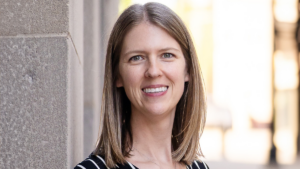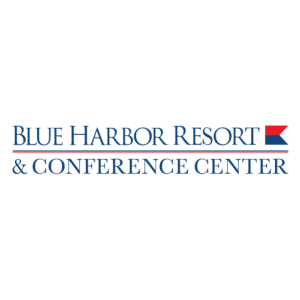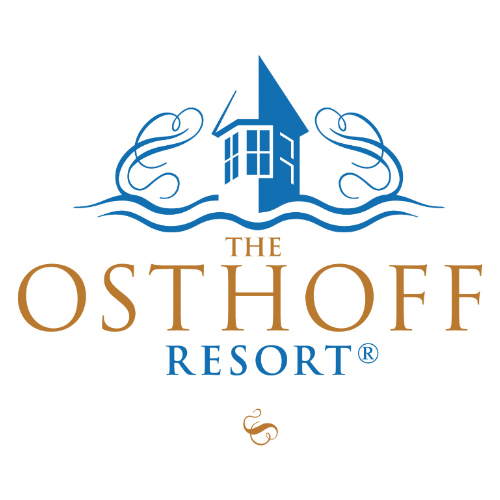How to impress your group with an inspiring speaker
02/15/2017
By Jennifer Bradley
Can a single person transform your event? Any meeting planner would say yes, but how?
“Every conference needs that moment that everyone talks about long after the event,” says Marcy Heim, a speaker, coach and major giving expert from the Madison area. Known as the “Artful Asker,” Heim says, “While people come to conferences to improve skills and network, they also want to be reinvigorated and inspired; your keynote speaker must do that.”
WHY?
Heim says the first thing any meeting planner must do when looking for a keynote speaker is to decide the takeaway they want the audience to have. What is the purpose of hiring this person?
She gives the example of the once-in-a-lifetime experience anyone is fascinated by, but a good keynote must be able to take that story and apply it to the audience’s needs. What is their takeaway, she asks? “I’m not going to climb a mountain. Whatever the amazing story a speaker brings, it must be directly connected to something relatable for the audience or the energy fades fast,” Heim explains.
She says people want to be entertained, yes, but pure entertainment alone isn’t as powerful as being inspired and getting solid content. Heim says meeting planners must think of their audience and what the members have in common. Why are they there? As a professional speaker she wants her words to make a difference for them, and as a person who attends conferences, Heim says she wants to listen to someone that gives her a takeaway she would (and could) actually apply in her own life.
WHO AND HOW?
While Heim is booking a good 12 months in advance, she explains the most important thing is to get a date on the calendar. Commit to the date, the general topic, the fee, and then work out all the details.
She also recommends meeting planners know their budget limits then look to the National Speakers Association, presenters from other conferences on the same topic and referrals for keynote options. “I still come back to what remains strong for all time,” says Heim, “and that is: who do you know that’s been great? Talk within your meeting planning network about who really rocked it, was entertaining, fun and got the message across.”
She says a great social media profile doesn’t necessarily equate to an outstanding delivery in a keynote address either. While Heim explains people ask regularly if she has a video, she says yes, but adds that she’d also have them watch a video of eight people talking about how her keynote presentation worked for their conference. “I would be concerned about testimonials that don’t have names attached to them,” adds Heim. “I think a quality speaker should be able to provide resources to call and quotes from real people.”
In addition, Heim says it’s more than reasonable to ask a speaker to provide some recommendations about what they’re like to work with too. She lets her meeting planner know when she arrives, shows up on time for sound check and works hard to be positive and pleasant, regardless of the challenges.
This leads to contracts, which can be tricky, but less so if quality, open communication precedes them.
Most of the time Heim wants to come in the day ahead depending on distance so she is not stressed about air travel delays and rushed before a big event. Heim also says she likes to experience the conference before and after speaking, if possible. “I want to have the chance to get to know my audience before I talk, and I like the opportunity to not have to run out the door afterward. I am a relationship builder,” she adds.
It’s no secret one of the biggest challenges meeting planners face is budget. With that in mind, Heim says she likes to approach the contract discussion in this way: “Don’t ask me to discount my rates, but let’s talk instead about how I can add more value to your conference.”
She often offers to present a session during the conference, as well as offer “rapid coaching” sessions perhaps as a bonus to early registrants or as a prize to a drawing set up by the event planner. Heim also likes to help promote the events she’s speaking at by producing a short video for the conference website and to use on her own space. She says with today’s technology, it’s a good idea to ask a speaker to consider helping with building excitement for the event.
With these things in mind, a meeting planner can find someone that is relatable, easy to work with and who wants to see the entire event be a success, not just their part.
WHAT?
As a relationship builder, Heim says that she enjoys it when a meeting planner works with her, and recommends the planners actively engage with their keynote speaker prior to the event, especially in determining what the keynote will be about, and exactly. She’s seen this play out in her speaking engagements, as well as others for good and not-so-good results.
For example, she’ll be presenting at the Association of Schools and Colleges and Optometry National Conference in November. The meeting planner has already told her to not confuse ophthalmologists with optometrists, and that the group is sensitive about this. “Empower your speakers by giving them any of those little pitfalls they might experience with an audience,” she recommends. “Understand that as a keynote speaker, my success is your success.”
A speaker should be entertaining and inspiring, but also on-topic, continues Heim. “I think that’s huge,” she adds. “The speech must have rich content that speaks to everyone attending the conference, and also pertains to the conference topic.” For example, she recently presented to the Independent College Advancement Association. In this audience were people who recruit students, marketing professionals, fundraising experts and alumni relations staff.
“I purposely tailored my keynote with the understanding that my audience was not just development professionals,” she explains.
A single person can transform an event. As a meeting planner, take the time to know your keynote speaker, engage with them, and help them help you. It takes time, but the outcome is one your guests and peers will be discussing long after they leave.











